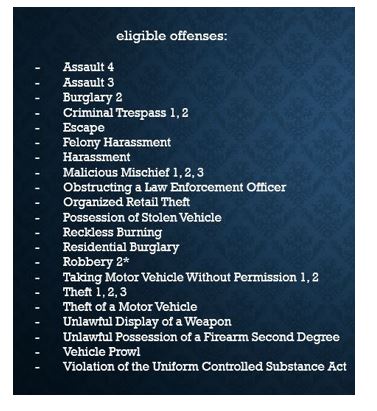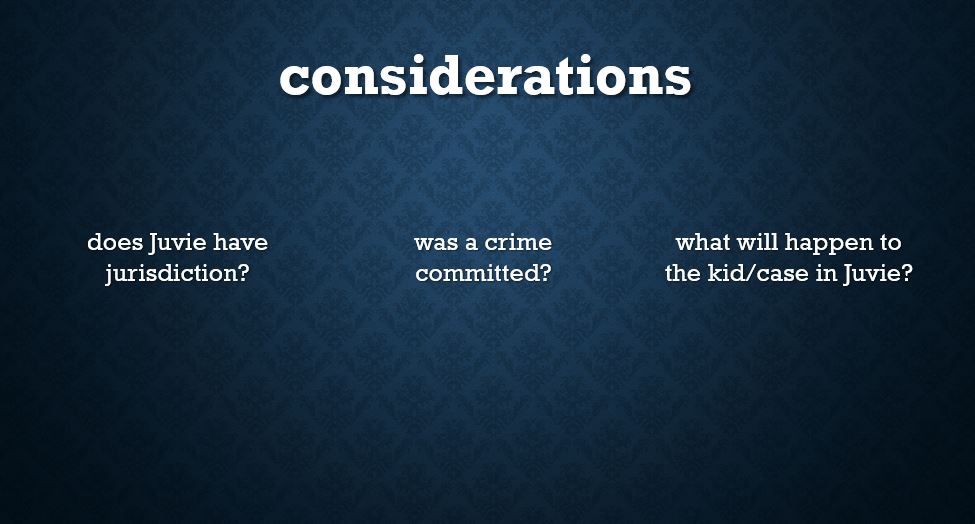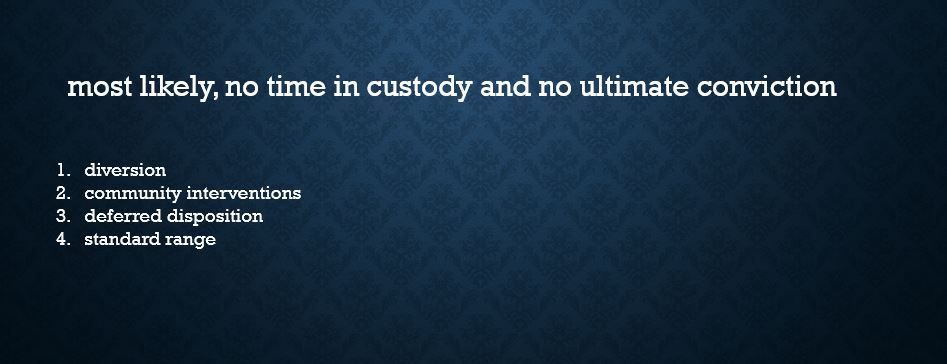King County’s shadow juvenile crime system needs reform
Earlier this week we introduced you to the King County’s Restorative Community Pathways (RCP) program and how it evades the judiciary section of the criminal justice system.
Now, we look at how it’s actually run – and our recommendations on how to change it.
The current program includes:
- Criminal youth dictating how the program is run
- Zoom meetings as punishment for organized theft and burglaries
- Refusal by prosecutors to file charges “even for serious offenses”
In a normal, sane criminal justice system, the law-abiding authorities run the show and the criminals are held accountable. The RCP literally does the opposite, as county documents explicitly state:
Since youth are most impacted by decisions related to RCP, the consortium members, program managers, and the County will be accountable to the youth.
…Over time, the RCP Youth Steering Committee will develop to be directed by youth and young adults who have completed the RCP program. The Youth Steering Committee will serve as the community-based decision-making body for RCP design, implementation, monitoring, and evaluation. This includes participating in the hiring of community navigators by RCP consortium members.
The Youth Steering Committee will be responsible for development of the RCP process after program launch. They will be responsible for the direction of RCP, hold a central role in supporting community evaluations of RCP, and support in the distribution of funds. They will also develop accountable relationships with community organizations to ensure that the work of RCP continues to be rooted in youth liberation and healing, not punishment.
One can presume that this same foundational premise will be used for the adult version of this program the county intends to start soon.
Make Your Voice Heard!
Contact the entire King County Council and tell them to pass a resolution postponing the adult version of the Restorative Community Pathways program until it includes accountability measures and the judiciary!
Contact King County Executive Dow Constantine and tell him not to move forward with the RCP for adults!
Among the organizations that’s received taxpayer money as part of the RCP is Community Passageways, which states on its website that the juvenile criminals they work with are the real victims.
We believe that criminalization and ostracization are ineffective deterrents to unproductive behaviors and that the carceral system—policing, jail, and state supervision—further harms people who have already been negatively impacted by trauma.
To be fair, the point isn’t entirely false. Many criminals, particularly criminal youths, have been victimized in the same way they victimize others. However, that doesn’t take away their moral agency, and the worst thing to teach them is that their behavior and subsequent arrest wasn’t their fault, but was due to systemic oppression.
What must be made clear to them is that criminal behavior is not acceptable regardless of who does it, that they have a moral obligation to respect other people’s rights and property as others do toward them, and that there are long-term repercussions if the behavior continues.
The truth is, criminal rehabilitation and homelessness outreach must adopt the same strategy if they’re to succeed. Just like there are some homeless who genuinely want to get back on their feet, there are some criminals who, if given the opportunity, will leave that life behind and lead productive lives. Actor and comedian Tim Allen is an example of that after being given a reduced sentence for drug charges when he was a young adult.
However, just as there are many homeless who have no desire to reenter normal society, there are criminals who plan to continue that lifestyle. Like with the homeless, outreach to juvenile offenders need to be able to identify one from the other so that efforts aren’t wasted on the wrong people.
Moreover, what is left out is whether keeping a juvenile in jail or giving them social services is in the best interest of public safety.
Obviously there are some that are unlikely to reoffend or are better suited getting therapy than facing jailtime, but that is impossible to determine when the entire basis of the program is that the criminal is the real victim and the system itself is the criminal.
But let’s not pretend they’re only targeting petty, seemingly harmless crimes. If implemented as designed, those running the RCP show could potentially include kids who’ve committed brutal attacks, harassed others, broke into homes, or even brought guns to school and threatened to kill other students.
In a recent news story by KUOW (NPR-Seattle), King County prosecutor candidate and Federal Way Mayor Jim Ferrell called attention to the types of crimes that would fall under the RCP. According to the county’s presentation, those include:

According to KUOW:
Unlawful possession of a firearm in the second degree is another charge that Ferrell said shouldn’t be eligible for diversion.
“Bringing a gun to school and unlawful possession of a firearm in the second degree is on that list,” he said. “And I’m like — really? With everything going on in this country you’re going to allow people to go to a program with no checkback that’s brought a gun to school?”
Prosecutors responded that a youth who specifically threatens someone with a gun would not be eligible for the program, and that only two or three people have been referred on this charge so far.
That is precisely the opposite of what they put in their unprofessional PowerPoint presentation. The very first example cited of a rehabilitation “even for serious offenses” is a boy bringing a gun to school and threatening to shoot someone during a confrontation.



After citing existing law, the prosecutor’s office comes to this conclusion in this hypothetical scenario.

Under the RCP, the potential school shooter would be referred to one of the community groups such as 180 Collective, which initially proposed RCP’s creation. Their program has the juvenile participate in one-on-one workshops that, according to the organization’s website, has shifted toward a “virtual model.”
So what happens when the juvenile, having completed the program from his bedroom computer, promptly goes back to school and this time actually shoots one or more people? Who is responsible? Who is held accountable? What measures are being put in place to ensure they won’t harm someone?
Diverting a potential school shooter to a social program, when there have been repeated instances of actual shootings preceded by telltale warning signs, is beyond irresponsible. Juveniles who threaten physical and deadly harm to innocent people, especially in schools, needs more than a “time out” devoid of legal oversight.
Some might argue that citing potential school shooters is fear-mongering because such instances are rare. This begs the question as to why the county prosecutors chose this scenario out of all the ones available to put into their presentation to cities, rather than a less serious case of schoolyard fighting.
But let’s take organized retail theft or organized burglary, which also falls underneath the program and is a huge problem right now in King County. If you’re a gang leader, who are you going to recruit to carry out your thefts and burglaries? You’ll send in juveniles without any prior offenses on their record. If caught, they get a slap on the wrist via the RCP and get a cut of the action that is likely more than what they’d earn working an honest job.
The same could be said for vehicle theft and other types of “non-violent” crime that undermine public safety and quality of life.
Do we really want to incentive that?
Ferrell has described the program as “easily fixable,” stating that accountable and judicial oversight needs to incorporated. “There must be a case number to track these offenses and the serious felony crimes should be removed from eligibility. With these changes, RCP has the potential to be a successful alternative to jail time for first-time juvenile offenders and will have my support.”
At the same time, Change Washington believes other reforms should include the following:
- Eliminating all of RCP’s current objectives and replacing them with the stated goal of reducing overall juvenile crime along with reducing instances of repeat offenses by juveniles. Another goal should be to ensure that juvenile offenders do not go on to commit crimes as adults.
- Replacing the RCP’s youth-led approach with a system in which elected officials accountable to the public, including the judiciary, make decisions about which offenders should be diverted or prosecuted.
- The creation of a record system that keeps track of any former RCP youths who go on to reoffend in King County.
There’s been enough wasted spending and no accountability when it comes to addressing the homelessness crisis in King County. The next county prosecutor can either heed those lessons when it comes to public safety, or force residents to suffer the consequences yet more failed public policies.
Contact the entire King County Council and tell them to pass a resolution postponing the adult version of the Restorative Community Pathways program until it includes accountability measures and the judiciary!